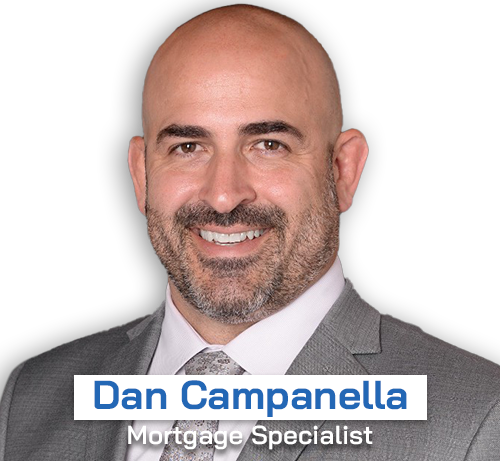When it comes to financing major expenses or consolidating debt, homeowners often turn to second mortgages as a viable option. A second mortgage is a type of loan that allows homeowners to tap into their home equity while still having an existing mortgage. In this comprehensive guide, we will explore the different types of second mortgages, their benefits and drawbacks, and the factors to consider before obtaining one. Whether you’re looking to make home improvements, fund education expenses, or purchase a second property, understanding second mortgages is essential.
What is a Second Mortgage?
A second mortgage is a subordinate loan taken out while the original mortgage is still in effect. It allows homeowners to borrow against the equity they have built in their property. Unlike the primary mortgage, which takes precedence in the event of default, the second mortgage is repaid after the first mortgage has been settled. Due to the increased risk for lenders, second mortgages often come with higher interest rates and lower borrowing limits compared to the initial mortgage.
Types of Second Mortgages
There are two major types of second mortgages: home equity loans and home equity lines of credit (HELOCs). Let’s explore each in detail:
Home Equity Loans
A home equity loan provides homeowners with a lump-sum payment based on a percentage of their equity. This loan is repaid in monthly installments, similar to the original mortgage. Home equity loans typically have terms ranging from 5 to 30 years. Borrowers should consider the interest rates, repayment period, and monthly payment amounts when deciding on a home equity loan.
Home Equity Lines of Credit (HELOCs)
HELOCs operate more like a credit card than a traditional loan. Lenders approve borrowers for a line of credit based on their home equity, allowing them to borrow against this credit as needed. HELOCs come with a draw period during which borrowers can make multiple withdrawals and minimum monthly payments. Once the draw period ends, the borrower must repay the remaining balance, either as a lump sum or over an extended period. HELOCs offer flexibility, but borrowers should carefully manage their finances to avoid excessive debt.
Benefits of Second Mortgages
Second mortgages can provide homeowners with several benefits:
- Access to Home Equity: Second mortgages allow homeowners to access the equity they have built in their property, providing a valuable source of funds for various purposes.
- Lower Interest Rates: Compared to personal loans or credit cards, second mortgages often come with lower interest rates, making them a more cost-effective borrowing option.
- Potential Tax Deductions: In certain cases, the interest paid on a second mortgage may be tax-deductible. Homeowners should consult with a tax advisor to determine their eligibility for deductions.
Drawbacks of Second Mortgages
While second mortgages have their advantages, they also come with potential drawbacks:
- Risk of Foreclosure: Since second mortgages are secured by the property, failure to repay the loan can lead to foreclosure and the loss of one’s home.
- Higher Interest Rates: Second mortgages generally have higher interest rates compared to primary mortgages. Borrowers should carefully consider the long-term financial implications of the interest rates.
- Additional Costs: Obtaining a second mortgage involves upfront costs such as appraisal fees, credit checks, and closing costs. These expenses should be factored into the decision-making process.
Factors to Consider Before Obtaining a Second Mortgage
Before applying for a second mortgage, homeowners should consider the following factors:
- Equity: Sufficient home equity is necessary to qualify for a second mortgage. Lenders typically require homeowners to maintain at least 20% equity in their property after obtaining the loan.
- Creditworthiness: Lenders consider credit scores and debt-to-income ratios when assessing loan applications. A higher credit score and lower debt-to-income ratio increase the chances of approval and favorable interest rates.
- Financial Stability: Borrowers should evaluate their ability to make additional mortgage payments and consider any potential changes in income or financial circumstances.
- Loan Terms: It is essential to review and understand the terms of the second mortgage, including interest rates, repayment period, and monthly payment amounts.
How to Obtain a Second Mortgage
To obtain a second mortgage, homeowners should follow these steps:
- Research Lenders: Shop around and compare offerings from different lenders, including banks, credit unions, and online mortgage lenders. Request rate quotes and evaluate their terms and conditions.
- Gather Documentation: Prepare the necessary documentation, including current mortgage information, income verification, credit reports, and property appraisals.
- Submit Loan Application: Complete the loan application process with the chosen lender. Provide accurate information and respond promptly to any requests for additional documentation or clarification.
- Review Loan Offers: Compare the loan offers received from different lenders, considering factors such as interest rates, repayment terms, and closing costs.
- Select a Lender: Choose the lender that offers the most favorable terms and conditions based on your financial needs and goals.
- Close the Loan: Work with the selected lender to finalize the loan agreement, sign the necessary documents, and pay any closing costs.
Alternative Financing Options
While second mortgages can be a suitable option for some homeowners, alternative financing options may also be worth exploring:
- Refinancing: Homeowners can consider refinancing their primary mortgage to access equity or secure better interest rates. Refinancing replaces the existing mortgage with a new loan, potentially reducing monthly payments and providing additional funds.
- Personal Loans: Depending on the purpose of the loan, homeowners may consider personal loans as an alternative to a second mortgage. Personal loans do not require collateral and may have more flexible terms.
- Credit Cards: For smaller expenses or short-term financing, credit cards can be a viable option. However, caution should be exercised to avoid accumulating excessive debt and high-interest charges.
Second mortgages can be a valuable tool for homeowners seeking to leverage their home equity for various purposes. Whether it’s funding home improvements, covering education expenses, or consolidating debt, understanding the intricacies of second mortgages is crucial. By weighing the benefits and drawbacks, considering individual financial circumstances, and exploring alternative financing options, homeowners can make informed decisions about their borrowing needs. Remember to consult with lenders, financial advisors, and tax professionals to ensure that a second mortgage aligns with your long-term financial goals.
Contact Dan (954-336-1922) for a free consultation!
—
 About Dan Campanella – Mortgage Specialist
About Dan Campanella – Mortgage Specialist
Dan provides clients with years of proven experience and an abundance of financing options for their mortgages. His common sense approach and devotion to customer service is what sets him apart in the highly competitive mortgage industry. Dan prides himself on consistently delivering “referable services” to his clients, referral sources, and partners.

